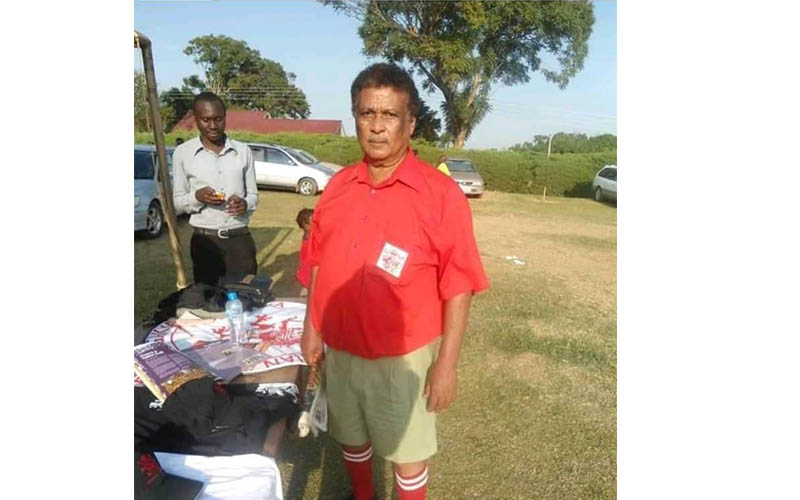After a long career abroad, culminating as regional IMF chief of Latin America, Mukulu returned to settle back home. Feeling still energetic, he formed a to do list, with setting up a mixed farm of banana plantains, a dairy farm of exotic cows and an orchard of oranges, at the fore. He had over the years been buying land back in his village of Bigenge which by the time he retired had expanded up to a square mile.
In planning to go into large scale farming, one of Mukulu’s main motivation was to give back to his home district. Through the years whenever he visited he was always grieved to see the extent of poverty washing everywhere. Passing through Bigenge town he saw children scattered about in rags while the youths were loitering in the center of town playing board games.
As a developmental financier, Mukulu had seen how investors had transformed rural areas by putting up large scale farms or a factory that lifted the neighborhood from poverty by creating jobs. “This will be my way of fighting poverty back home,” he had long reasoned and couldn’t wait to get started.
However, his brother Dr Laba, who had also retired from public service as a medical officer, advised him against. “Just invest your savings in the money market than throwing it to those ungrateful people!”
Mukulu ignored and collateralized some of his assets to secure financing for the dream farm. Because of the specialized nature of his project he brought over workers from neighboring Kenya with expertise. This included the Farm manager, Mr Koinage, These workers were housed in uni-pots scattered over the farm. As migrant workers they ate mostly out which gave a boost to Bigenge’s town life. Restaurant and bars suddenly opened to provide services. And once the farm started harvesting produce, Jubilee bank, that had long neglected Bigenge town opened up a branch to provide needed services for farm workers and the growing town population.
Mukulu was happy that because of his project Bigenge was finally being transformed into a prosperous town. The farm was always looking for extra hands and in town businesses were in need of help. “Finally Bigenge is going to be on the map as a model town,” he called up his skeptical brother Dr Laba. “I have created jobs for our people!”
“You wait!” Dr Laba shot back skeptically.
Mukulu wondered why Laba was so skeptical when his project had even improved the road leading to Bigenge. He remained convinced of his mission and opened up a juice factory. Each time he wanted to expand his farm he would go to his bankers who impressed with his vision extended him another credit line.
In spite of all Mukulu was struggling to make ends meet. According to his business plan he had expected to break even in his third year of business operation. But come to fifth year he was still in the red. One of the things affecting progress was pilferage. “We would be braking even by now,” Mr Koinage had once told him, “but there is theft everywhere. These people steal the milk, the fruits and even at the factory they end up stealing and selling the our manufactured goods on the market to compete with ours.”
“How ungrateful!” Mukulu said, recalling Dr Laba’s concern “Maybe we should carry out a sensitization community workshop to win them over.”
The Local Council Chairman, Liso, was a forward looking man who had welcomed Mukulu’s project because it would create jobs. He was tired of seeing youths aimlessly loitering about. Upon being contacted he quickly organized a community meeting. Yet when Mukulu turned up early with Liso, attendance was poor. In fact, soon after, things just got worse.
One day Mukulu was summoned by the National Bureau of Standards threatening to shut down his factory claiming that he had compromised quality. Mukulu was surprised as at the factory he took extreme care to meet all the set standards. Apparently, someone not happy with his factory had reported him to the regulator, whishing he close shop.
By then Mukulu’s debt had soared to worrying levels. “I brought development here,” he talked to his bankers who were now threatening to liquidate the farm and factory, “yet instead of supporting me these are the same people sabotaging.”
As the debt worsened Mukulu called another community sensitization meeting. This time effort was made to have residents attend by urging them to attend through a loudspeaker blaring out invitation for a week. The turn up was quite better and at the meeting Mukulu got straight to the point. “I am asking all of us here to come and pull together,” he pleaded. “Our farm and factory have all the promise of creating jobs but some of us here are the ones sabotaging it. Not only do they steal farm produce but some have started reporting us to the authorities who are threatening to shut us down. What kind of bad people are these! I want us to be sincere with ourselves if we are closed down, who will have gained!”
There was silence. The meeting ended with everyone pledging support. However, just as Mukulu was stepping into his car to head back to the city, he overheard some of the villagers sharing. “I don’t understand why this rich man is bothered with the little we steal!”
“Those people just want to have everything,” the friend countered. “Why is he telling us he is helping us like he found us starving!”
Mukulu now realized he had a far bigger problem. For all his effort to develop and modernize Bigenge he was being accused of exploitation. Unable to service his loan due to recurring fraud at the farm and factory, the bank finally auctioned off. The new owners other than him decided to plant trees which didn’t need much of farm hands. All the foreign workers left and shops closed. Bigenge reverted back to its old dusty town of youths loitering about playing board games and children scattered waiting for someone to come and sponsor them out of poverty.
On occasion we do come across such well-intended developmental projects brought to the country only to be sabotaged by the very people they sought to help. Around one town a story is told of a certain commercial bank that was ruined and brought to its knees by the very workers it provided jobs with due to internal fraud. A lot that had been going on to the detriment of the bank was known and could easily have been arrested through mutual cooperation. But there was an attitude that this bank “belongs to those rich people” giving justification to fraud. The interesting thing is when the bank was closed the majority of the staff who lost their jobs, tainted with having worked for a fallen enterprise, failed to secure employment elsewhere. Most soon packed and went back to the village where they died languishing in poverty.
Here Mukulu had brought home a development project but he lacked support, or at least there was a significant section of the population that did not appreciate him. In the end, just as Dr Laba had advised him, he decided to cut his losses, went back to the city and put all his money in the money market to live off interest without any further stress. But for his people in Bigenge it was back again to their life of squalid poverty.
—————————————————————————————————–
@ Turning Point is authored by Dr Martin M. Lwanga with the purpose to inspire by reflecting on life through personal experiences and life observations. The first collection of “Turning Point” is finally out, titled “Who is my Friend?” You can order a copy at only UGX 30,000 ( extra costs for delivery). Send/ Call Whatsup message 0772401774/ 0752921386.










